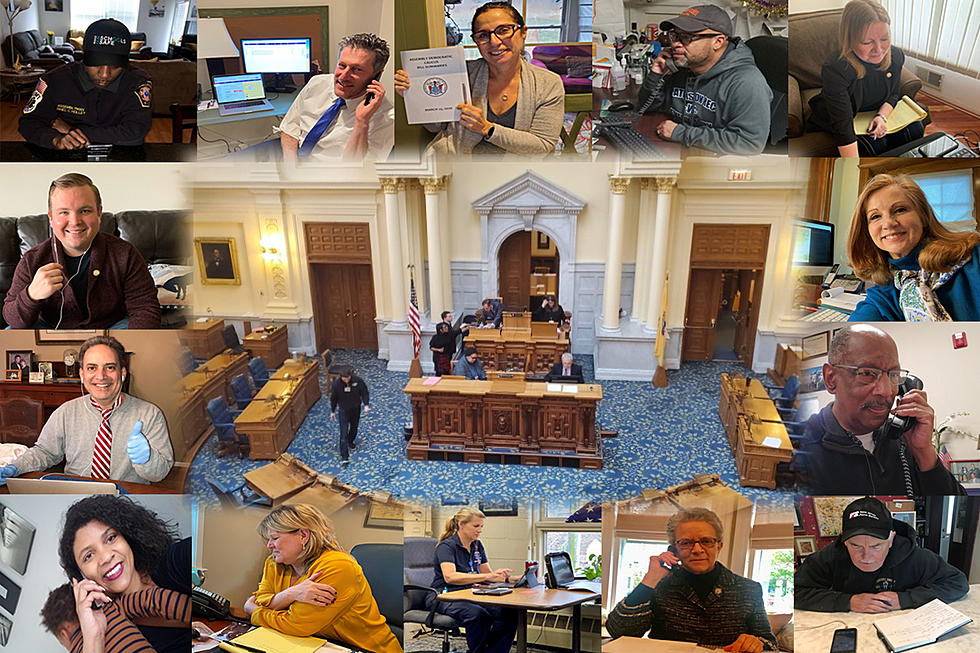
NJ Assembly votes by phone to approve five virus-response bills
The state Assembly passed five bills responding to the novel coronavirus outbreak Wednesday, though the content of the legislation took a backseat to the way the voting session itself was conducted – by phone, with just one lawmaker in Trenton.
The remote voting session, authorized by a bill passed and signed into law last week, was the first for the Legislature and believed to be the first votes it cast outside of Trenton since it became the capital in 1790. It holds committee hearings and public hearings around the state on occasion, but not votes.
“I’m in Trenton in a nearly empty Assembly chamber, and I miss you guys. I wish you were all here with us,” said Assembly Speaker Craig Coughlin, D-Middlesex, in opening the session. “But we have important work to do, so I thank everybody for their cooperation.”
Assembly Minority Leader Jon Bramnick, R-Union, said the Assembly is coming together in the face of a serious health threat and that it’s important that state government “act as one unified voice.”
“Let me be clear about this: This is not the time to play partisan politics or to rely on opinions not based in science,” Bramnick said. “Those of you out there who continue to snipe on social media, just stop and do something positive for mankind.”
“Our state and our nation face a very serious challenge – maybe the most serious in our history. Therefore, all of us should be asking one question and one question only: How can we help?” he said.
Seventy-nine members participated in the session. All five bills up for votes passed without opposition:
- A3900/S2304 Expand access to family leave and disability benefits during epidemic-related emergencies. Already passed in the Senate, and Gov. Phil Murphy signed it into law almost immediately after it reached his desk.
- A3901 Permits professional and occupational licensing boards to reactivate licensure of certain individuals during state of emergency or public health emergency.
- A3902 Permits extension of certain deadlines applicable to local government units under emergency circumstances. Examples include filings of municipal budget notices and reports related to property tax levies. Cities and towns can also extend grace periods for quarterly property tax payments.
- A3903 Allows remote notarial acts during Public Health Emergency and State of Emergency declared by Governor in Executive Order 103 of 2020. The Legislature passed a bill last week allowing notaries to act remotely, but this updated bill limits that authority to the current pandemic.
- A3904 Permits use of virtual or remote instruction to meet minimum 180-day school year requirement under certain circumstances. A similar bill passed this week, but the new version clarifies that public school employees who aren’t covered by union contracts are to be paid during school closures and virtual or remote instruction.
The session’s initial quorum call dragged on because lawmakers weren’t participants in the conference call until their lines were activated and the telephone roster wasn’t in alphabetical order because some names were misspelled.
“Oh my God, I’m going to take a walk around the building,” said Assemblyman John DiMaio, R-Warren, probably not realizing his line wasn't muted.
Once Coughlin directed everyone’s lines to be taken off mute, the proceedings sped up – but each roll call vote still took about five minutes. A session with just five bills, none of which were debated, took more than 50 minutes – suggesting that without changes, virtual sessions won’t be an efficient way to handle regular business in which lawmakers make motions, ask questions and deliver speeches.

More From 105.7 The Hawk










